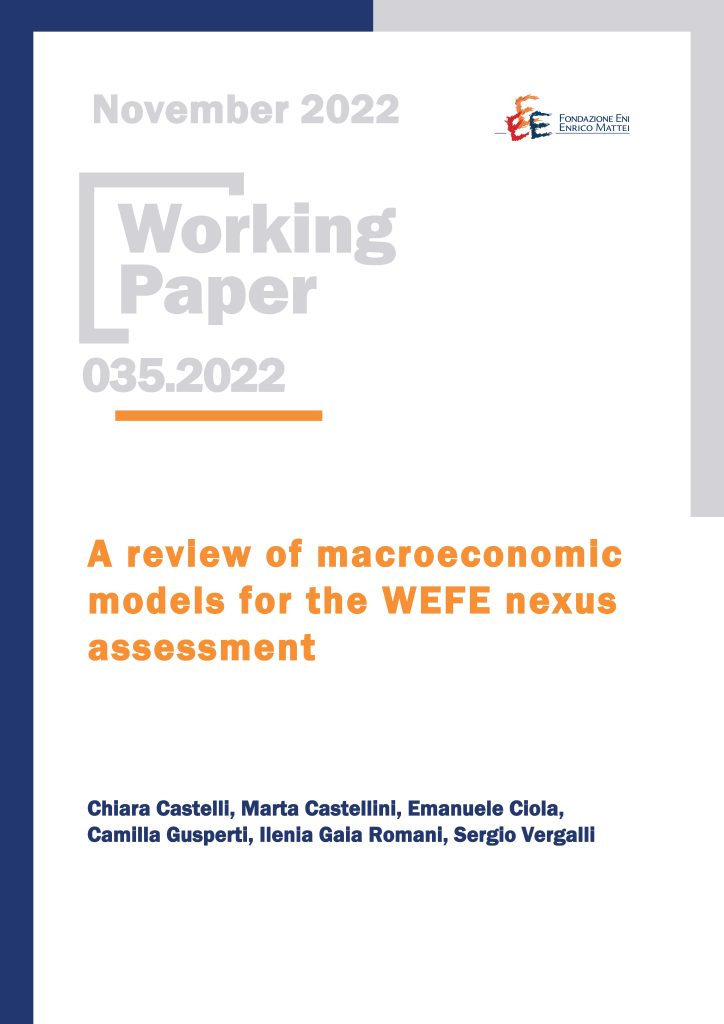A review of macroeconomic models for the WEFE nexus assessment

28.11.2022
Chiara Castelli (Fondazione Eni Enrico Mattei and Wiener Institut fur Internationale Wirtschaftsvergleiche); Marta Castellini (Fondazione Eni Enrico Mattei and Department of Civil, Environmental and Architectural Engineering, University of Padua); Emanuele Ciola (Fondazione Eni Enrico Mattei and Department of Economics and Management, University of Brescia); Camilla Gusperti (Fondazione Eni Enrico Mattei); Ilenia Gaia Romani (Fondazione Eni Enrico Mattei and Department of Economics and Management, University of Brescia); Sergio Vergalli (Fondazione Eni Enrico Mattei and Department of Economics and Management, University of Brescia)
Q18, Q25, Q43, Q54, Q57
Agent-based, Computable general equilibrium, Dynamic stochastic general equilibrium, Integrated assessment, Macroeconomic models, Water-energy-food ecosystems nexus
The Water, Energy, Food and Ecosystems (WEFE) nexus refers to the system of complex and highly non-linear interconnections between these four elements. It now represents the basic framework to assess and design policies characterized by an holistic environmental end economical perspective. In this work, we provide a systematic review of the macroeconomic models investigating its components as well as combinations of them and their interlinkages with the economic system. We focus on four different types of macroeconomic models: Computable General Equilibrium (CGE) models, Integrated Assessment Models (IAMs), Agent-based Models (ABMs), and Dynamic Stochastic General Equilibrium (DSGE) models. On the basis of our review, we find that the structure of IAMs is currently the most used to represent the nexus complexity, while DSGE models focus only on single components but appear to be better suited to account for the randomization of exogenous shocks. CGE models and ABMs could be more effective on the side of the policy perspective. Indeed, the former can account for interlinkages across sectors and countries, while the latter can define theoretical frameworks that better approximate reality.
***
Suggested citation: C. Castelli, M. Castellini, E. Ciola, C. Gusperti, I. G. Romani, S. Vergalli, ‘A review of macroeconomic models for the WEFE nexus assessment’, Nota di Lavoro 035.2022, Milano, Italy: Fondazione Eni Enrico Mattei
